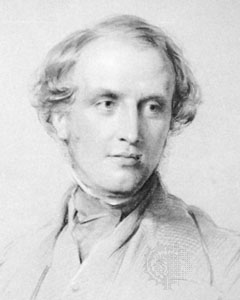Lord Canning (1856-61)

First War of Indian Independence (Sepoy Mutiny): Lord Canning regime was remarked by the first War of Indian Independence also called sepoy Mutiny. The popular discontent against the British rule flared up into a g-sac uprising; the immediate cause being the refusal of Indian soldiers of Barrackpur to use the new Enfield cartridges which were greased with animal fat. On march 29, 1857 at India sepoy killed a British officer on parade. It was followed by the revolt of sepoys at Lucknow, Ambala, Burhanpur and Meerut on 10th May 1857 Bahadur Shah ‘Zafar’ was proclaimed Emperor of India.
The important leaders of the revolt were Ahmad Ullah, an advisor of the ex-king of Awadh, Nana Sahib, his nephew Rao Sahib, his retainers Tantia Tope and Azimullah Khan, Lakshmibai, The Rani of Jhansi, Begum Hazrat Mahal of Lucknow, Kunwar Singh, the Rajput Chief, and Firuz Shah a relation of Mughal Emperor. The uprising failed. Bahadur Shah Zafar, the last Mughal Emperor was exiled to Rangoon.
Proclamation of Queen Victoria : Queen Victoria issued a proclamation on November 1,1858 whereby the governance of India came directly under the crown. Lord Canning was accordingly appointed as the first Governor-General and Viceroy of India.
Legislative Councils Act : In 1861 Legislative Councils Act was passed by the British parliament, according to which Legislative councils were set up in provinces and Indians were associated as members. Lord Canning was succeeded by Lord Elgin who after a while was succeeded by Sir John Lawrence. Sir Lawrence was succeeded by Lord Mayo in 1869 who was killed by a prisoner in 1872 while on a visit to Andaman. He was succeeded by Lord Northbrook (1872-76).


jaipur was a victim of DOCTRINE OF LAPSE but its not under the wikipedia list …
Amazing … Doing a great job Wowww http://www.google.co.in salute to the team… I love reading your articles
There are so many spelling mistakes . Please rectify those mistakes, otherwise the article will be rendered useless.
Awesome great information
Thanx
What’s for the students preparing for IAS but preffered or choose Hindi medium
Verry good
It should definitely improve knowledge
Nicer
Amazing job keep it up
Give some information in hindi also
Best
New techniques required